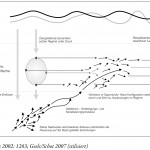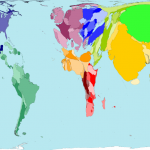Big Data: Informatisierung und Soziologie
9. Februar 2017In der Berliner Debatte Initial 27(4) ist in diesen Tagen der Artikel »Big Data: Informatisierung der Gesellschaft 4.0« erschienen. Nachfolgend einige kleine Ausschnitte aus dem Schlusskapitel.
In der Langzeitbetrachtung wird deutlich, dass sich im aktuellen Diskurs um die gesellschaftlichen Folgen von ›Big Data‹ viele der dystopischen und utopischen Erwartungen widerspiegeln, die bereits seit den 1960er-Jahren an digitale Massendaten und Datenfluten geknüpft worden sind […]. Nach der Emergenz der Idee einer Informationsgesellschaft im Kontext der akademischen Urbarmachung von Computern in den 1960er- und 1970er-Jahren (1. Phase), einer ersten Welle der Informatisierung der alltäglichen Lebenswelt in den 1980er- und 1990er-Jahren (2. Phase) sowie dem Aufstieg der Datenkonzerne und der zeitgleichen diskursiven Betonung der ermöglichenden Eigenschaften der Plattformen im Web 2.0 in den 2000er-Jahren (3. Phase) rücken seit 2010 explizit Massendaten sowie die Fragen nach ihrer Kontrolle und Auswertung in den Mittelpunkt der gesellschaftsweiten Diskussion um neue Informations- und Kommunikationstechnologien (4. Phase).













